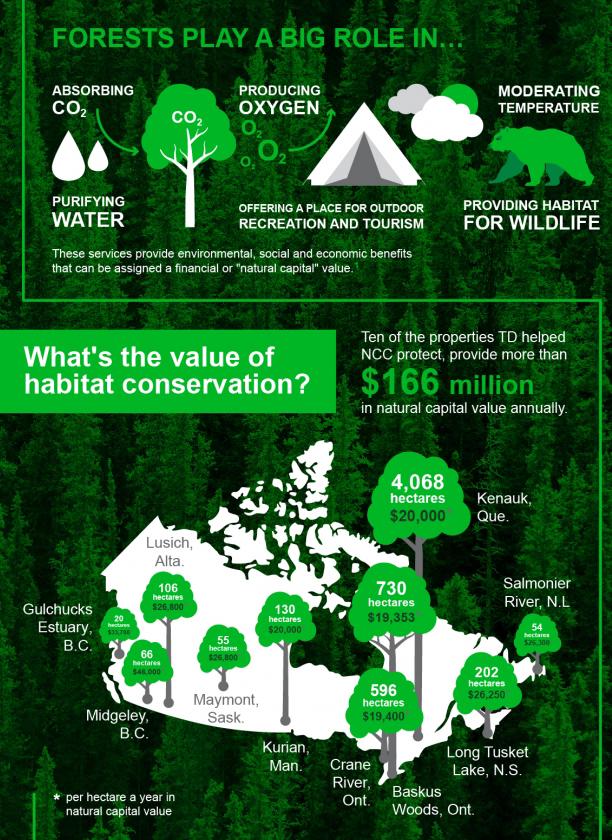Can We Put a Price on Forest Conservation? TD and Nature Conservancy of Canada Look at the Natural Capital Value of Forests

This week marks National Forest Week (September 24-30), a time to reflect on the value of our forests and learn more about the impact this natural resource has on our environmental, social and economic well-being.
Earlier this year, TD Bank Group and Nature Conservancy of Canada (NCC) released a report that examines the role of forests in Canada – and the value that they provide to us. Since 2012, TD has helped NCC protect over 16,000 hectares of forests across the country through the TD Forests program. These forests, and countless others, are vitally important for the ecosystem services they provide.
In addition to providing essential habitats for wildlife, forests offer natural capital services. "Natural capital is the value of environmental goods and services that our natural resources provide," says Karen Clarke-Whistler, TD's Chief Environment Officer. "For example, trees are not only a source of lumber, but they also help filter the air that we breathe, absorb CO2 from the atmosphere, and help with flood mitigation – services that would otherwise need to be engineered. When you consider the financial value of these benefits to society, the link between a healthy environment and prosperous, low-carbon economy is clear."
The report presents case studies of eight forest regions in Canada, and explores the natural capital value of each. Here are some of the key findings:
Economic: The health of our forests is vital to economic stability. In total, ten of the forest properties that TD helped NCC protect provide more than $166 million in natural capital value annually.
Environmental: Forests offer incredible value by absorbing C02 from the atmosphere, which helps mitigate the impact of greenhouse gas emissions and climate change. Canada's peatlands, in particular, store 147 gigatons of carbon – the equivalent of one-fifth of all the carbon in the atmosphere.
Social: Forests are places for ecotourism activities, such as hiking and camping, which bring people together outdoors. Trips to forested areas have been proven to reduce stress, improve immunity and mood.
To learn more about natural capital valuation of forests, read the full report at www.natureconservancy.ca.
Sources
The restorative benefits of nature, Journal of Environmental Psychology

